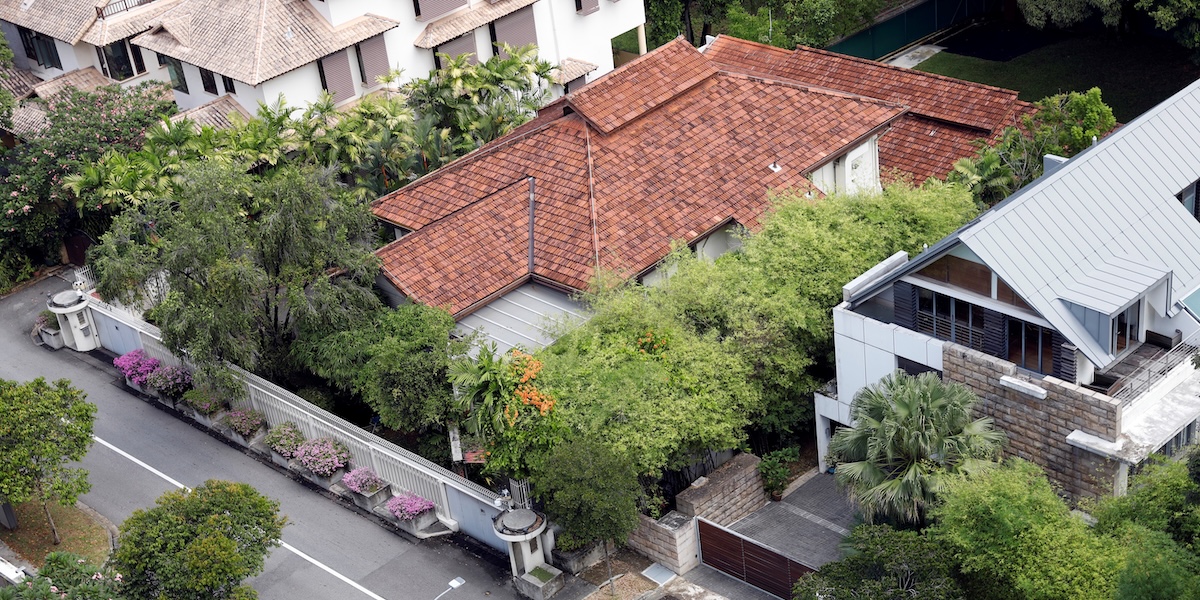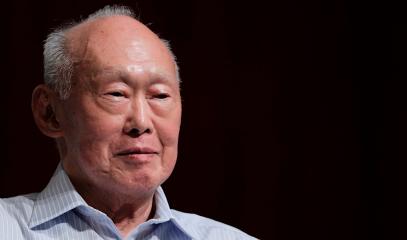The home of former Prime Minister Lee Kuan Yew, Singapore’s founder, has been declared a 'national monument'
The compound has been at the centre of an ongoing battle between his children over its fate. The father had called for its demolition or closure to the public. The government stresses its "historic merit”, which make it “worthy”" of preservation. Still, its future remains uncertain. The meetings that led to the founding of the People's Action Party in 1959 were held in the basement.
Singapore (AsiaNews) – The Singapore government today said that it will declare the home of the late Prime Minister Lee Kuan Yew a national monument, thus ending a bitter dispute between his children (and heirs) over the fate of the compound and honour one of the Asian city-state's most important figures.
An advisory board has determined that the single-story bungalow, built in 1898 in the city centre, is worthy of preservation, this according to a statement from the National Heritage Board (NHB) and the Singapore Land Authority(SLA).
According to the experts, the historic building “bore witness to pivotal events in the 1950s that marked Singapore’s transition from a colony to an independent nation.”
The board deemed 38 Oxley Road to be of national importance, with "great historic merit, and worthy of preservation," the statement says.
Furthermore, for the experts, if the house were to be purchased, it would need to be converted into a public space accessible to the public.
Lee, a controversial leader who passed away in 2015, had publicly stated that he wanted the house demolished, a request included in his will. If that were not possible, he wanted it to be closed to anyone except his family and descendants.
Preserving the site did not oblige the government to keep all buildings and structures in their current state, and all options will be considered.
"Regardless of the option taken, the government will respect Mr Lee Kuan Yew's wishes, and will remove all traces of Mr Lee's and his family's private living spaces from the buildings," says the statement by the NHB and SLA.
The question of what to do with the site has become a major issue in a public dispute among the former prime minister's three children after his death.
The eldest son, Lee Hsien Loong, who stepped down last year as the young nation's third prime minister, believe it is up to the government to decide what to do with the property, including whether to preserve it as a historical monument.
His sister, Lee Wei Ling, and younger son, Lee Hsien Yang, want the compound to be demolished in accordance with their father's wishes.
In a 2018 report, a ministerial committee stressed that an immediate decision on the house was not necessary, since the late prime minister’s daughter Lee Wei Ling still lived there.
After her death last year, Lee Hsien Yang applied for permission to demolish the house.
Lee Kuan Yew told the Straits Times newspaper in 2011 that he wanted the house demolished because it would "become a shambles" if opened to the public, and hoped its removal would improve land values in the neighbourhood.
If the site is acquired and preserved, it will be converted into a public space, the NHB and the SLA explain. This means it cannot be redeveloped for residential, commercial, or other uses.
The announcement comes more than a year after Lee’s third son, Lee Hsien Yang, filed the demolition request on 21 October 2024.
The government responded at the time by saying it would evaluate whether it merited or not preservation as a national monument. The NHB and SLA clarified that preservation does not necessarily mean maintaining it in its current form.
A final decision on the site's future will be made "within this term of government," which runs until 2029, and all options will be considered, including partial or total demolition of the buildings and structures.
The decision to preserve 38 Oxley Road site comes more than a decade after Lee's death in March 2015 and follows years of discussions over the property's fate.
Built in the late 19th century, the compound is closely associated with key events in Singapore's history; for example, the basement dining room hosted meetings that led to the formation of the People's Action Party, the ruling party since 1959.
Lee Kuan Yew ruled the country with an iron fist, isolating political opponents, muzzling the media, and restricting personal freedoms, despite steering the national economy towards prosperity.
Even religious freedom, while recognised, was subordinated to the common good of society.
Singapore's founding father also promoted legislation aimed at preserving religious harmony, which entailed tight control over free thinking and any challenge to established power.
Even when it came to economic development, labour policies, and relations with trade unions, Singapore's elderly leader espoused conflicting visions and projects.
10/07/2020 09:54








.png)










